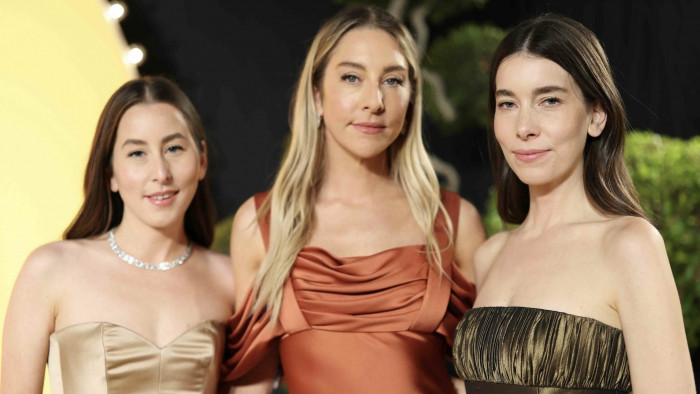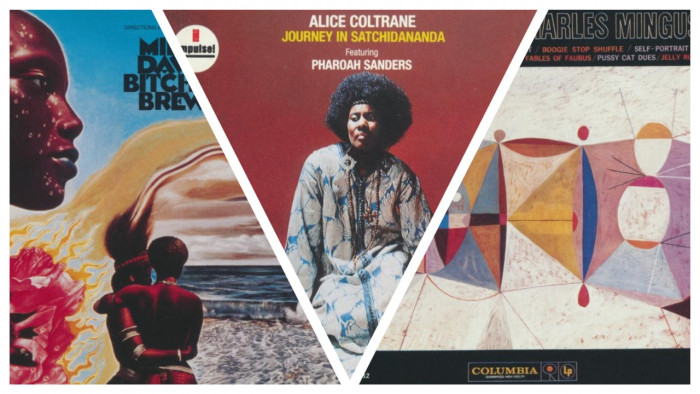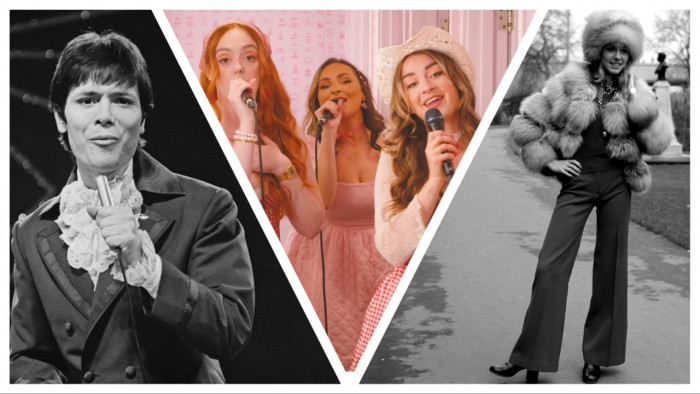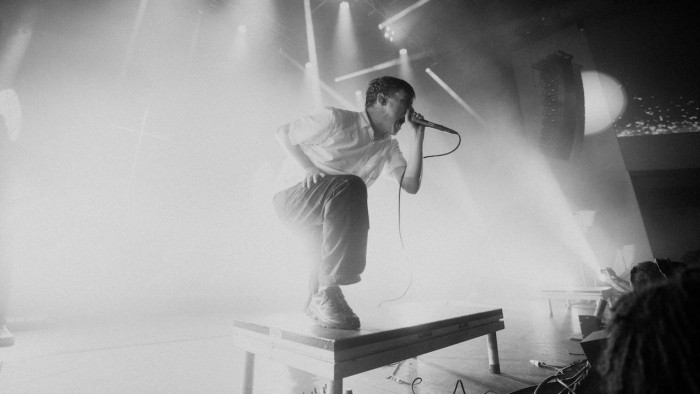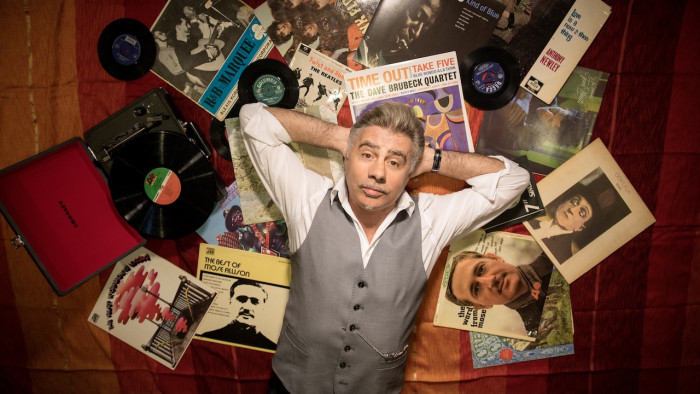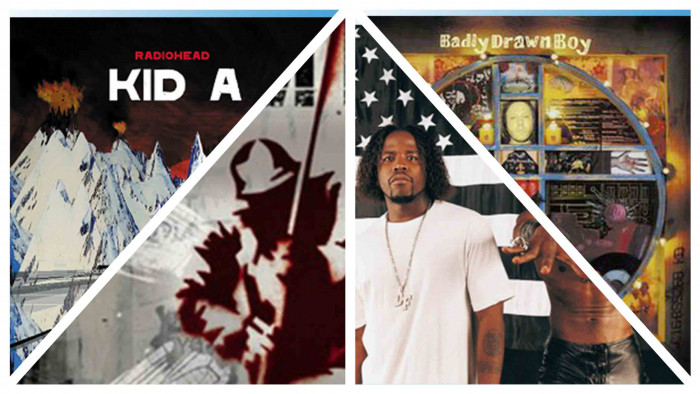We sat Johnny Borrell down and asked him to explain himself
Former Razorlight frontman defends the hits, the misses & those quotes


It's fair to say that no one has experienced the 'build 'em up to knock 'em down' mentality of the British press quite as forcefully as Johnny Borrell.
Having been involved with the formation of the Libertines, he rose to worldwide fame as the rent-a-quote, unabashed rock star frontman of Razorlight, who rode the crest of the early naughties indie wave to sell bucketloads of their debut album Up All Night and then, armed with a genuine mainstream crossover hit in the form of America, even more of their second, self-titled, album.
However, the critics turned on third album Slipway Fires, the rest of the band departed, before being replaced (and unveiled via a much-mocked photograph) while Borrell moved on to a completely new venture.
Borrell 1, a record made by Borrell and his backing group Zazou, was released in 2013 to predominantly negative reviews and famously sold just 594 copies during its first week on sale, quite a comedown for a man who played Wembley Stadium (as part of Live Earth in 2007) and sold more than 2.5m albums in the UK alone.
This 'failure', complete with a mocking press release from his own label, saw open season for the critics to gain their revenge.
Now, he's back with a second album with Zazou, entitled The Atlantic Culture, and once again, it looks unlikely to be bothering the charts.
But does he care?
And does he stand by what he did in the past, or does he have regrets?
What about those famous quotes?
We spoke to Johnny in Paris to discover the truth. And no, we weren't walking down the street with a guitar at the time.

Why did you go for this feel - it’s not very commercial?
“To be fair, we’ve been doing it for about four years. To me, what we tried to do on the first one, we had very, very strict rules where we didn’t want to use a drum kit, or electric bass - or any bass whatsoever - and we just limited ourselves to a piano, a saxophone and various percussion, and vocals. And I thought we made a really interesting-sounding record with that setup, and we went and toured it. The difference with this one is, with the same musicians, we just said, ‘OK, we’ve done that and that was a really great four piece. We’re gonna tear up the rulebook and say, OK, I’m allowed to use an electric guitar and we’re allowed to have a bass, and we bought a string quartet in and various stuff like that, so it’s really the same sound as the first record but allowing ourselves the lushness of multiple instruments. Because it was a real exercise the first one. We recorded it on cassette, y’know and everything like that.
“So I think when you’re asking a question like that, the key is… I don’t think anybody - I can’t speak for anyone apart from myself - but I don’t think you go ‘Ok I’m gonna go for this sound today’, every sound is an evolution of, step-by-step, y’know? I’m going back to the first record because that was something that… I invited three musicians to my house and those were the instruments that we had around us and it was such a beautiful sound, we were so inspired by the sound that we then made that the frame of the painting - those were our limits and we stuck to that - so just bit-by-bit this sound is an evolution of that sound which was an evolution of the various musicians…it was a bit like skittles, we’d just play whatever instruments were there. Which was really re-invigorating for me, because I’d reached this point musically where I was expected always to go onto a stage and have the whole shebang.. and have that big sort of intense thing. So it was quite fun for me to get on to different stages and play without microphones and amplification and things like that.”

Do you regret calling your album Borrell 1 and using somewhat ‘outlandish’ song titles? Do you look back and think, well, if I’d done things a little bit differently, perhaps more people would have listened to it, because it would have been judged on the music, rather than - I think unfairly - a lot of people dismissed it before they’d even heard it?
“Are you saying to me, did I deliberately make choices to ensure that people would relate to the record not for the music, but would have their noses put out?”
Do you regret that that is possibly what happened?
“If you’re asking me that should I have recognised that actually that song title [Pan-European Supermodel Song (Oh! Gina)], because it’s not a normal song title - and that’s your observation - could give people ammunition to shoot me down and had I recognised that, would I then have changed the song title to give people a better chance of hearing the music? [Sings] ‘This is the Pan European Supermodel song’. That is the correct title for the song. Are you asking me that on the grounds of worrying that it would offend people, or give them ammunition, that I should then change the correct title of the song for fear of doing something that’s ‘not normal’? If you ever speak to any musician who would answer in the affirmative to that and say, ‘d’you know what, I changed my message because I was scared of being ‘not normal’ because I was scared that if I was not normal it was going to give people ammunition to attack me’, I don’t think they have a right to release records.
“Calling the album Borrell 1 is about the least pretentious thing you can ever do in your life. To me that was the most self-effacing title it could be. I was like “I don’t even want Johnny Borrell written on the front of it” I just want, there you go: Borrell 1, this is this collection of songs.
“The album to me was a great success in what it was supposed to be. It’s an absolutely perfect Parisian album, it has a great deal of knowing, it’s an album about people’s personas and what they project and their outside image. It’s an image album. And it is, artistically, precisely what it was supposed to be. I felt really pleased about the writing, I felt that I hadn’t written anything for a while; I was very, very pleased that the music came back and gave me what I felt were some really songs.
“What can I say? It’s not for everyone, and I’m absolutely fine with that. There was absolutely no thought from my side that this was going to be a commercial thing. If I wanted to make a commercial record do you think I would go to a house in the South of France, run a tape recorder, get rid of the bass guitar, get rid of the guitar, get rid of the drums, all the trademarks of the sound that I built up that, frankly, I had the last five years having people telling me, ‘just make any record with Razorlight, you can put out anything, it can be absolutely anything, but it’s gonna make you money, it’s gonna be good for your career, do that’. Frankly if I’d been looking for any kind of commercial advantage in my life at that point, do you honestly think I would have gone and made a strange - but charming in its own way, and I think quietly persuasive record - with a bunch of unknown musicians, on a cassette… d’you think I’d have done that? Don’t you think I’d have like got Razorlight together and put out a bit of indie rock and gone round and done all the radio shows, all the TV show and everything like that?
“I mean really?.. What did it sell, a thousand records? I tell you what, that’s not bad in this day and age! Because we are in the least amenable environment for actual live music - that is recorded - than there has been since the birth of the phonograph. That’s really not too bad going. This obsession that the press seem to have with the commerciality, or the lack of, is just baffling to me. Absolutely baffling.”

Do you regret making a big deal in the past about how you dreamed of playing Wembley?
“Who made a big deal about that? Excuse me. I was in a conversation with Krissi Murison who went on to be the editor of the NME, and she said to me something about how Ryan from The Cribs - and this is the context of that quote, which is something that I said once - she said something about how Ryan from The Cribs was saying that I was only doing interviews because I was trying to increase the commerciality of my band, or something like that. And I just kind of laughed and I said, ‘I’m sorry, that’s the only reason anybody does any interviews, 99% of the time’.
“As soon as any band, whether they’re The Pixies or The Cramps… when they put a record out they go and do interviews - why am I getting blamed for that concept? Ryan from The Cribs - he does interviews because he wants to sell a record. And then I said something along the lines of, ‘doing interviews is not what you dream of when you’re thinking about forming a band. When you’re thinking about forming a band you don’t dream of sitting there with a tape recorder in front of you doing interviews all day, you dream about playing Wembley Stadium.’ That’s the only thing I ever said about Wembley Stadium! And now you’re telling me that I made a big deal about playing Wembley Stadium? You can imagine I want to scream right now!”
“You don’t dream of doing press interviews, you dream of playing Wembley Stadium” - that’s what you just said…
“Yeah, but not me personally. I’m using the pronoun ‘you’, right? I’m not saying ‘I’, so for then you to use the word ‘you’, you’re now making it seem like ‘I’.
OK - you’ve made that distinction, that’s fine - so what did you grow up dreaming of doing, what did you want to do?
“I’ve always wanted to be a musician.”

Do you regret the “Bob Dylan’s making the chips” quote?
“OK, decipher it for me: “If Bob Dylan’s making the chips, I’m making champagne”.
Well I have no idea.
“Well, OK, but everybody in the world has taken it to mean that I think I’m better than Bob Dylan. Now, do I regret the fact that everybody has taken that to mean that? I can’t regret things on other people’s behalf. Right - again, for the record, in no way do I think that I’m better than Bob Dylan, nor have I ever said that. You’re talking to somebody [that] when I first started busking in the tube when I was 14 years old I was doing a pretty good version of Don’t Think Twice It’s Alright with the finger picking on the guitar, I’ve been through every Bob Dylan record. I probably know more words to every Bob Dylan song than anybody else, outside of some very sad Geography teacher somewhere, with patches on his elbows.
“I’m a disciple and a student of Bob Dylan like anybody who’s ever written a song is and in no way do I think I’m better than Bob Dylan. But if you’re asking me ‘is it frustrating every time that I put out some new music to see that the first two things that people have to talk about is whether or not I think that I’m better than Bob Dylan - or whether I did ten years ago - and whether I rode the motorbike in my own house when I was living with a movie star [Borrell has admitted riding a motorcycle in the house he shared with then-girlfriend Kirsten Dunst], I mean, gosh, I don’t understand what that’s about - yeah, that’s frustrating. But do I regret being a human and talking - no!”
What did you mean by that then?
“I don’t know, sometimes you speak in metaphors - I suppose when you use a metaphor you don’t even know what you’re saying yourself, it’s quite often with songs it’s the same thing and you kinda go ‘oh I see, that’s what I mean by that’. I remember that Paul Moody, the journalist, we were in Glasgow, he was asking me how I felt my first record compared to Bob Dylan’s first record, or something like that. And I felt very excited about my first record at that point in time and I don’t really rate Bob Dylan’s first record, and that’s what he was specifically asking me about. You can feel that there’s some power there but it’s a kind of a very sort of collegiate collection of not-very-inspired covers of authentic folk and blues with two compositions…and I felt that where I was, right in time, was akin to drinking champagne, whereas what Bob Dylan was doing with that first record was making chips. Now, I think that’s pretty accurate.
“I felt we were having lots of success, it was an exciting time and there was an explosion of sort of youthful excitement and energy all around us. What does champagne do? Champagne is rare, it fizzes, it’s effervescent, it’s in a bottle, it comes out in times of celebration, there’s good champagne and bad champagne, better champagne and worse champagne. I don’t know! Chips are important too! I’ve got nothing against chips! Why’s everyone so against making chips? I made chips three days ago! Not the worst thing in the world! Oven chips - brilliant - you just put em in, you know, nice and cripsy - it’s great! They’re both important! …People change the quote, people then say “he thinks he’s a better songwriter than Bob Dylan” - that was the one. It was like “man, how ignorant can you be?” There’s not a songwriter alive that thinks they’re better than Bob Dylan. If you did want to take that at face value, you’d still have to take that as punk rock posturing.”

Do you regret saying “I’m a genius” and “I’m the best songwriter of my generation?” Or did you believe it at the time - and if you did, is there anything wrong with that?
“It’s an interesting question. It was definitely adolescent posturing. But to be fair, I wasn’t the only one. Almost every singer in a band at that time, my friends - I remember Peter Doherty, y’know - they all said, ‘I’m the best songwriter’. I remember Peter saying exactly that, saying I’m the best songwriter around. Everyone said that. It was like playground, “my dad’s bigger than your dad” kind of nonsense. I think the muse died and probably slapped us in the face for being like that, to be honest. And I think we deserved it. Peter wrote some good songs you know. I feel like I wrote some really good songs on the first Razorlight record but you can’t go round saying things like, “I’m the greatest songwriter” cause if you do the muse - she don’t like that - she turns round and slaps you in the face and I think: ‘fair enough’. But I think that’s part of the hubris of youth, and that’s what we have rock stars for.”
I always found it very entertaining personally.
“Yeah totally! The thing that got really bad for me was that I could do that and be quite funny, and be quite amusing with it, in that kind of way, and that was fine, and I did that for about a month and I was like, ‘I’ve done that, I’m moving on,” and then they’d try and do it for you and they’d just write these outlandish things that you never said and you were just like, “what?” - and it was like the landfill version of your essence, and they were doing it without any of the wit. That was distressing - and in your name.”

Do you still believe that ‘you’d find out more truth by just walking down the street with a musical instrument than by looking at any of the news outlets’?
“I think it’s unquestionably true that a truth that you would discover by going out into the world and talking to people is fundamentally of a different nature than the truth that you would discover by watching a newsfeed. Can we agree on that? And then I would also add a truth that you could experience by meditation, in your room, is again a different level of truth…I think we’re agreed that they’re different. How can you say one is more truthful than the other?
“I think my point was that as soon as a newsfeed, or a newspaper exists where they take all the information that is going on around the world, and they condense it into four lead stories - I’m thinking you’re looking at the front page of the New York Times or the BBC or whatever - necessarily, there has to be an editorial choice that gets you to that point. Now any evaluation of, ‘that train disaster is more important than those people having their homes invaded by the state, or that’s more important than that polar ice cap melting, or that’s more important than somebody getting eaten by a crocodile in Australia’. Somebody somewhere is choosing which ones are more important - that’s the nature of editing.
“And I think my point in the article was that as soon as you engage in this editorial process, it is necessarily political, because you are valuing certain things above other things. And for nobody can that be an impartial - it wouldn’t make sense to imagine that being an impartial process, so what you get is truth, grouped together - and you can see this, less now, but go back 30 years you could see this if you were reading Pravda or you were reading the New York Times, it’s a different collection of truths. Now it’s necessarily an editorial choice, so you are getting somebody else’s idea of what is important, and that was my point.”
That makes a lot of sense.
“Well, it does! The thing is, The exact quote that I said, I could have heard that down at the local Buddhist meeting and nobody would bat an eyelid.”
Does that frustrate you then, that that gets so much attention?
“No - if it gets so much attention, it means that there’s something wrong somewhere, with the status quo, clearly. Because it’s not a revolutionary idea. That idea has existed for like 5000 years and it’s not revolutionary and, really, if we’ve got to a point where we feel that that’s really so dangerous an idea, well somebody needs to be saying it.”

If you could have one thing that you could say to everyone, that would be listened to without prejudice, what would it be?
“I can’t help but feel that it’s incumbent on me to point out that everybody is misrepresented in the press, to some extent, because that is the nature of it. As human beings, we first of all create a persona of what we want to show to the outside world, and we do this on every level and in the case of celebrity or whatever, this persona is then given to an anonymous circle of people who will then make of it what they want to make of it and it becomes what it becomes. So, I think it’s just a process that just happens and I really don’t know how to answer your question apart from to say that I am a musician making music - and that’s what I’m gonna do for the coming years of my life is make music.
“There’s nothing I can say to answer your question because I think it’s too self-referential anyway. It’s a really hard one to answer. Are you telling me that I can give a message to people that’s going to be undiluted by a spin - is that what you’re asking? Yeah, well, I’d like to just let the music speak for itself, because that’s all I can do. I have beliefs about the world and I think politically and spiritually we’re in a really strange place and it’s up to artists to talk about that but really that’s not what’s important. What’s important is commitment to your music… I would love it if I could make music and people would review the music. It would be amazing.”
(Images: Rex)


